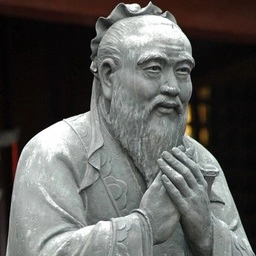Long-term career goals serve as the guiding principles that shape the trajectory of your professional journey. They are not merely indicators of the position you aim to hold or the level of income you strive to achieve, but they embody a deeper commitment to your ongoing development both personally and professionally.
As industries and job functions continue to transform rapidly, the ability to set and pursue these goals with determination and flexibility becomes essential to thrive within your chosen field.
A comprehensive understanding of these aspirations will ensure that the steps you take are aligned with your desired destination in the realm of your career.
Practical, well-defined long-term objectives are a CRITICAL component in carving out a fulfilling and progressive career path—ensuring that every role you undertake and every skill you acquire moves you closer to your ultimate vision of success in your professional life.
What are Long Term Career Goals?
Long-term career goals represent your professional aspirations over an extended timeline. Specifically, these are typically set for a 5 to 10-year horizon and may include:
- Achieving leadership roles within your industry.
- Acquiring new, relevant skill sets.
- Transitioning to different career paths.
These goals are foundational to your career trajectory and are distinct from short-term objectives, as they require a future-oriented mindset and sustained efforts.
Why Long Term Career Goals are essential?
Long-term career goals set the tone for a fulfilling journey within your professional life. These goals carve out a path for where you want to head in your industry, aligning your daily efforts with your envisioned future. Here are key reasons why establishing these milestones can be invaluable:
- Providing Direction and Focus: When you define your long-term objectives, you gain clarity on the destination of your career path. This awareness guides the steps you take, ensuring each move is purposeful towards your end goals.
-
Motivation and Engagement: Visioning your future success cultivates an intrinsic motivation that keeps you driven. It empowers you to stay engaged, even when confronted with challenges or the potential staleness of routine responsibilities.
-
Skill Acquisition: Advancing towards your long-term goals usually requires new skills, broadening your expertise.
-
Continuous Learning: You’re encouraged to pursue ongoing education, whether formal or through practical experiences, which is paramount in today’s dynamic work environment.
-
Enhancing Employability: Demonstrating your ability to set, pursue, and achieve meaningful career milestones makes you an attractive candidate to employers, as it showcases commitment and strategic thinking.
-
Achievement: Reaching significant career goals results in high levels of accomplishment.
-
Alignment: Personal satisfaction is heightened when you’re actively progressing towards goals that resonate with your values.
-
Better Adaptability to Change: A clear vision allows you to flexibly alter your immediate strategies to maintain alignment with your long-term aspirations, providing resilience against industry shifts.
To optimize your goal-setting process, consider delving into goal-setting books, which encapsulate life-long learning and experiences to enhance your skills in crafting and pursuing your objectives.

The Reality Behind Long Term Career Goals
Research suggests that a relatively small percentage of people achieve their long-term goals. A study from the University of Scranton found that only 8% of people fulfill their New Year’s resolutions.
Additionally, goal-setting theory emphasizes the importance of having challenging, specific, and concrete goals to motivate and boost performance over the long term (NCBI).
Pursuing long-term goals can often be a marathon, not a sprint, and it’s crucial to maintain your focus and determination even when the path gets tough. Remember, every step you take towards your goals, no matter how small, is progress.
"It does not matter how slowly you go as long as you do not stop."
 Confucius
Confucius Let this wisdom remind you that persistence is key. Your dreams and aspirations are worth the effort and the patience it takes to achieve them. Keep your eyes on the prize and don’t let temporary setbacks dissuade you from pushing forward.
Keep competing with yourself, improving, and envisioning the success that awaits. Your future self will thank you for the resilience and tenacity you show today.
How to Set Long Term Career Goals
Setting long-term career goals is a vital step in building a successful and fulfilling professional life. A clear set of objectives can guide your decisions, keep you motivated, and help you measure progress.
Here’s a straightforward guide to setting your long-term career goals:
1. Reflect on Your Interests and Values
- Think about what you enjoy doing and what matters most to you in your work.
- Consider your strengths and where you excel.
2. Research Potential Career Paths
- Look into industries and jobs that align with your interests and skills.
- Talk to people in those fields and ask for their insights.
3. Visualize Your Future
- Picture where you want to be in 5, 10, or 20 years.
- Imagine the kind of work you’ll be doing, the environment, and your lifestyle.
4. Define Your Long-Term Career Goals
- Write down specific, clear goals.
- Make sure they are achievable and relevant to your skills and passions.
5. Break Down Your Goals
- Divide each long-term goal into smaller, short-term objectives.
- Set realistic timelines for achieving these milestones.
6. Develop a Plan
- Create a step-by-step action plan for each short-term objective.
- Determine what skills you need to develop and what experiences you need to gain.
7. Keep Learning
- Stay informed about industry trends and changes.
- Pursue further education or training if necessary.
8. Network
- Connect with professionals in your desired field.
- Join relevant groups and attend industry events.
9. Stay Flexible
- Be prepared to adjust your goals as your interests and the job market evolve.
- Keep an open mind to new opportunities.
10. Review and Revise Regularly
- Set aside time periodically to review your goals.
- Update your plan as you achieve milestones or as your circumstances change.
Remember, the journey to your long-term career goals is not always linear. Be patient with yourself, and don’t be afraid to seek guidance from mentors or career counselors.
"Success is not final, failure is not fatal: It is the courage to continue that counts."
 Winston Churchill
Winston Churchill With persistence and a clear vision, you can build a career that is both rewarding and aligned with your personal aspirations.
Real-Life Example Applying Long Term Career Goals
When setting long-term career goals, it’s helpful to see how others have successfully navigated their paths. Consider Maggie, a software engineer aiming to advance within her tech company.
For Maggie, her journey is mapped out as follows:
-
Years 1-3:
- Master AI and cloud computing technologies.
- Courses: Take up advanced learning in AI.
- Conferences: Attend tech conferences focusing on AI and cloud innovations.
-
Years 4-6:
- Assume leadership roles in key projects.
- Mentoring: Provide guidance to junior engineers, preparing them for future promotions.
-
Years 7-9:
- Move into an executive role, managing several projects.
- Visibility: Aim to speak at a conference to share expertise and insights.
-
Year 10:
- Secure a position as a Director of Engineering, a role that signifies reaching a pinnacle in tech leadership.
To foster a strong network, Maggie consistently engages with industry peers through professional platforms like LinkedIn and open-source communities such as GitHub to expand her influence and career opportunities.
Key Activities:
-
Skill Development: Not just limited to on-the-job learning, Maggie actively seeks out educational opportunities that can help her stay ahead of industry shifts.
-
Networking: By connecting with thought leaders, she remains informed about the direction of the tech industry and the skills needed to secure a more advanced job title.
-
Review and Adaptation: Bi-annual reviews of her career trajectory allow Maggie to realign her goals with the current industry landscape and her evolving professional interests.

Through intentional actions, Maggie ensures that every step taken is a calculated move towards her ultimate career objective. Her clear and deliberate approach can serve as a blueprint for your own career planning, demonstrating how a well-thought-out strategy can significantly enhance your professional journey within a corporation.
Long Terms Goals Brainstorm
When considering your long-term career aspirations, it’s beneficial to reflect on both where you are and where you hope to be. You might be eyeing a salary increase or a transition to a role that offers more flexibility. Here are some objectives you can work towards:
- Gain a Leadership Role: Assume responsibility by aiming for positions like manager or CEO, key roles where your decision-making can define an organization’s future.
- Become a Subject Matter Expert: Specialize in areas such as UX design to become the person colleagues turn to for insights and solutions.
- Initiate Your Entrepreneurial Journey: Start your own venture, potentially leading to both personal satisfaction and financial growth.
- Drive Meaningful Change: Improve practices in your current field by innovating or influencing significant advancements.
- Financial Goals: Whether it’s pursuing a higher salary or achieving financial independence, outline specific income targets.
- Balance Work with Life: Seek opportunities that align with your desired lifestyle, ensuring you can manage professional and personal commitments comfortably.
- Network Development: Forge strong professional relationships to open doors to new opportunities and insights.
- Expand Internationally: Acquire experience in global markets, enhancing your adaptability and cultural intelligence.
- Career Shifts: If your values or interests evolve, consider a new direction that may offer a more rewarding trajectory.
- Continuous Skill Enhancement: Dedicate yourself to lifelong learning through various educational paths to remain competitive.
- Industry Recognition: Set milestones for accolades or acknowledgment, which can further affirm your expertise.
- Mentorship: Share your knowledge by coaching others, which can be a fulfilling way to give back to your professional community.
- Legacy Building: Create lasting contributions that have an impact well beyond your tenure.
- Personal Achievement: Ultimately, your career should lead to a profound sense of personal fulfillment.
Bullet your short-term goals to act as stepping stones toward these broader objectives, and remember, career planning is a dynamic process that can adapt to changes in your life and industry.




